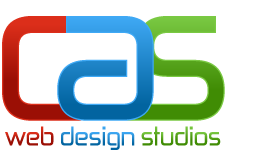A domain name is probably the most critical component of your website. It's how people find you. Whether its via word of mouth or a search engines like Google. But are all domain names equal? Have you chosen the right one for your business? Or will your wrong choice in domain name even cause you a loss in business? Below I've listed some tips on choosing a right domain name for your business!
Be Relevant
The best advice we usually start with is stick to branding. If you have an already established client base, they know you by name. So if they wanted to find out whats hip and happening with your business, they'll more than likely search for your business name. Simple, but it works!
Branding is not just a random combination of words like realestate.co.za or plumberjohannesburg.co.za, unless that is your actual business name (not likely but there are exceptions). Often people choose domains like these for "SEO (Search Engine Optimization)" purposes, but there is more to online business than SEO (we'll leave this topic for another day).
Rather opt for something like, joeplumber.co.za or sallyrealestate.co.za as these describe who you are, as well as what you do. For more established businesses this would not be necessary–as we said before–a simple brand name will do.
Identify Your Target Market
This always applies in the web design process, but even more so when choosing a domain. You need to make sure you choose the right domain extension like .com or .co.za.
This is a simple one, but often forgotten. Who are your customers? Do you serve local markets, international markets, or both?
If you serve local markets, it would be better to have a .co.za domain. This indicates you're a local business, and your local market would much rather do business with you knowing this. On the flip side, international markets almost expect a .com domain. If however, you serve both local and international markets, it would be better opt for the .com as your main extension and have the .co.za domain redirect to your .com domain.
Avoid Hyphens, Numbers & Funny Spellings
Hyphenated domains are hard to convey and often mistaken for a competitors domain, as people tend to forget the hyphens. So rather opt for johndoemarketing.co.za than john-doe-marketing.co.za.
Numbers in domain names are really bad. It's hard to remember and creates some serious confusion. Something like marketing4you.co.za is terrible! Don't do it. Phone a friend quick, tell them to go to marketing4you.co.za. I'll bet you you'll have to explain whether it's for, four, or the number 4.
Then there's funny spellings. Once again, having to explain something like xcited.co.za instead of excited.co.za is not ideal.
In Conclusion
A successful domain name is easy to remember, easy to convey, avoids confusion, and not mistaken for another. You want to make it as easy as possible for potential customers to find your website–and having a 5 minute explanation on spelling your domain right is just going to cost you business.
If you absolutely have to have one of the above domains for whatever reason it may be, at least make sure you have every variation of the domain! Preventing potential customers from ending up in the wrong place.
Your Turn
Have any other examples people should stay away from? Ever chosen a wrong domain for your business? How did you fix it?
Tell us about it in the comments below!






